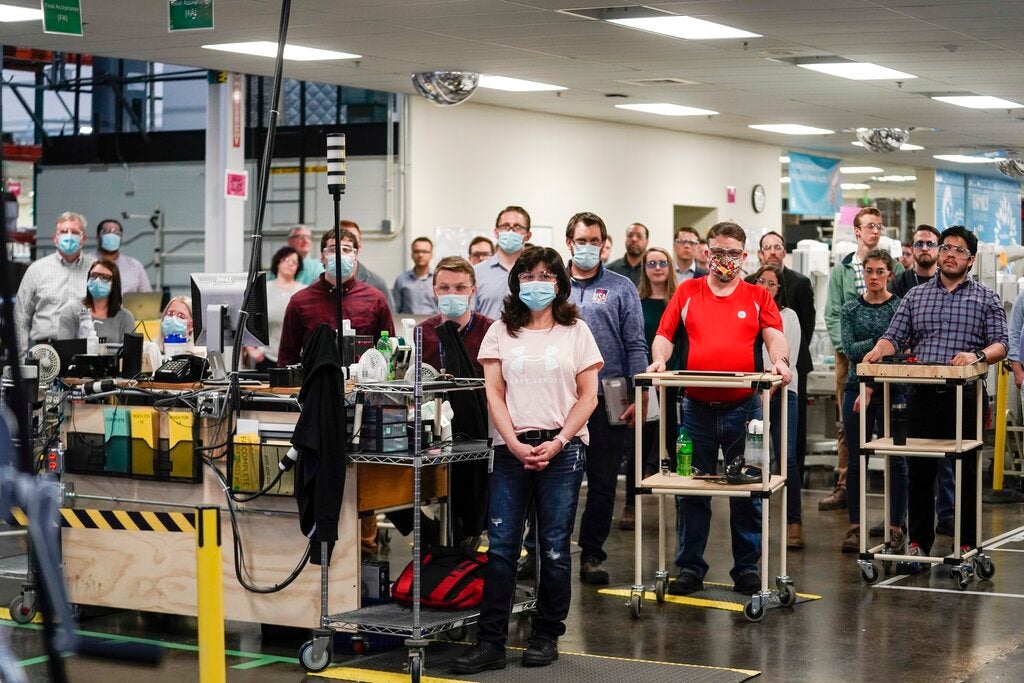Claims of sexual harassment and payouts to victims has led to Bill O’Reilly’s ouster from Fox News. But while news of the situation is new, the claims and incidents are not. So why did it take so long to affect his career? Marches for Science will take place around the country this weekend. Our guest examines how politicians twist scientific findings to suit their own ends. And telecommuting has become more and more popular over the past several years, but some companies are reeling their employees back into the office. We find out what the pros and cons are of working remotely, and what the future may bring.
Featured in this Show
-
Book Details The Ways Politicians Misuse And Misrepresent Science
When public officials discuss scientific issues, a common refrain is, “I’m not a scientist, but . . .” Our guest says that’s problematic, and his new book details the rhetorical devices that politicians use to oversimplify or distort scientific research. He joins us to talk about how we can identify questionable statements, and why science should be better understood in public life.
-
Working Remotely Is Falling Out Of Favor For Employers
The ability to work from home has been offered as an option and a perk to employees at many companies. But many of these companies are now calling on their employees to come back to the office. We’ll speak with Reporter Sarah Kessler of Quartz about the future of telecommuting.
-
Sexual Harassment Claims End Bill O'Reilly's Career At Fox News
After years on top at Fox News, Bill O’Reilly has been fired due to sexual harassment claims, and payouts to victims, coming to light. Our guest asks why his downfall took so long.
-
Employers Back Away From Letting Employees Work Remotely
As a way to attract talent and retain talent, employers offer employees the opportunity to work remotely, but companies are starting to shift away from that as more value is being placed on in-person collaboration.
“For a while there was this notion of remote work as something that was the future and that office space would eventually become obsolete. And I don’t think that that’s true,” Sarah Kessler, a reporter at Quartz, said. “I think that a lot of companies are realizing that there are a lot of advantages to working together.”
One big company changing its long-held policy of allowing remote work is IBM.
IBM has been a proponent of remote work for decades, but earlier this year, IBM Chief Marketing Officer Michelle Peluso decided to end that policy for the company’s marketing department.
As Kessler has reported, employees who worked primarily from home would need to come into the office, and remote workers — employees living in locations outside the reach of the company’s main office — would need to either relocate to one of IBM’s six offices or find a new job.
The reason behind IBM’s transformation was a desire to foster greater collaboration. In some cases, Kessler said, the company had teams comprised completely of employees living in different states. The idea behind the change was that teams would be able to work more quickly and efficiently in person.
The research on whether teams are more productive in person isn’t definitive. But there is a belief in certain companies that while individuals may be more productive on their own, they’re more innovative in groups.
“There’s been a sense for a long time, intuitively, that people come up with better ideas when they’re together,” Kessler said.
One study did point to the conclusion that individuals are more productive when working by themselves. The study found call center employees were able to complete more calls on their own than when they were surrounded by colleagues.
Does that mean companies should worry about productivity going down when employees work in the office? Not necessarily, Kessler said.
“If we’re both on a team, and I figure out something that makes me work faster, and now I share that with you, the group productivity has gone up a lot,” whereas individuals working remotely wouldn’t be able to do that, Kessler said.
Companies implementing in-office policies believe innovation will come naturally when team members have easy access to one another, Kessler noted.
Critics of phasing out remote work say it limits employees’ flexibility to control their own schedules and reveals distrust in employees, she said.
But whether it’s best practice to allow employees to work remotely partially depends on the industry, Kessler said. For example, freelancers are often better on their own for the simple reason that they don’t usually work on teams. But bigger companies, such as IBM, need environments that allow for easy communication and collaboration.
Episode Credits
- Rob Ferrett Host
- Veronica Rueckert Host
- Dean Knetter Producer
- J. Carlisle Larsen Producer
- Haleema Shah Producer
- Judith Siers-Poisson Producer
- Dave Levitan Guest
- Sarah Kessler Guest
- Amanda Terkel Guest
Wisconsin Public Radio, © Copyright 2025, Board of Regents of the University of Wisconsin System and Wisconsin Educational Communications Board.




